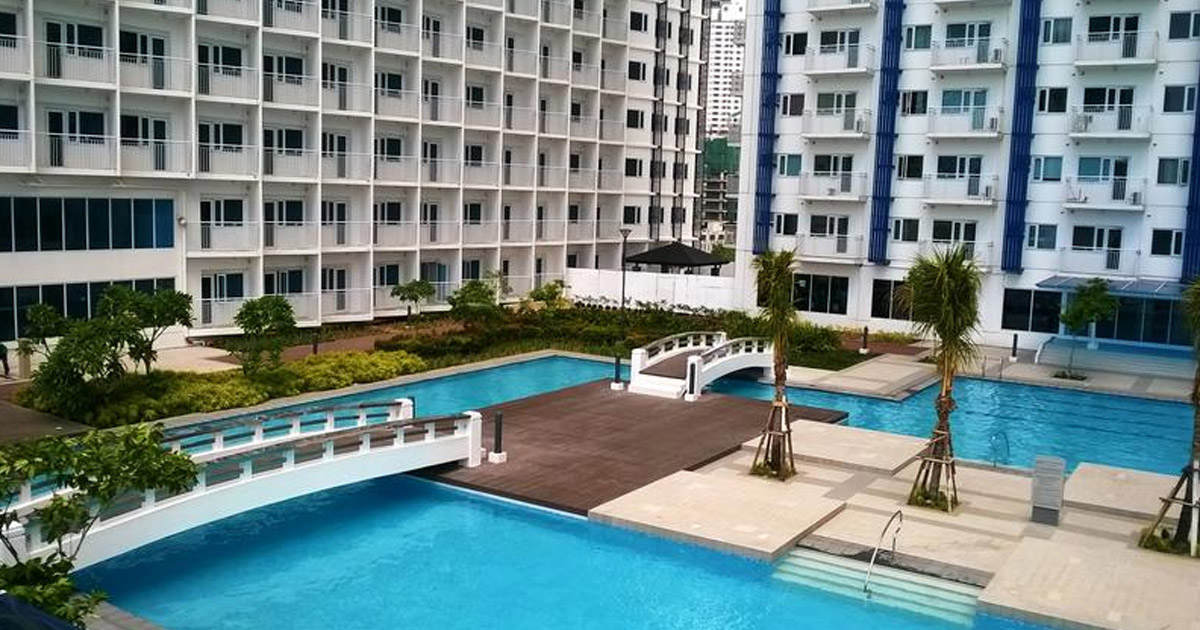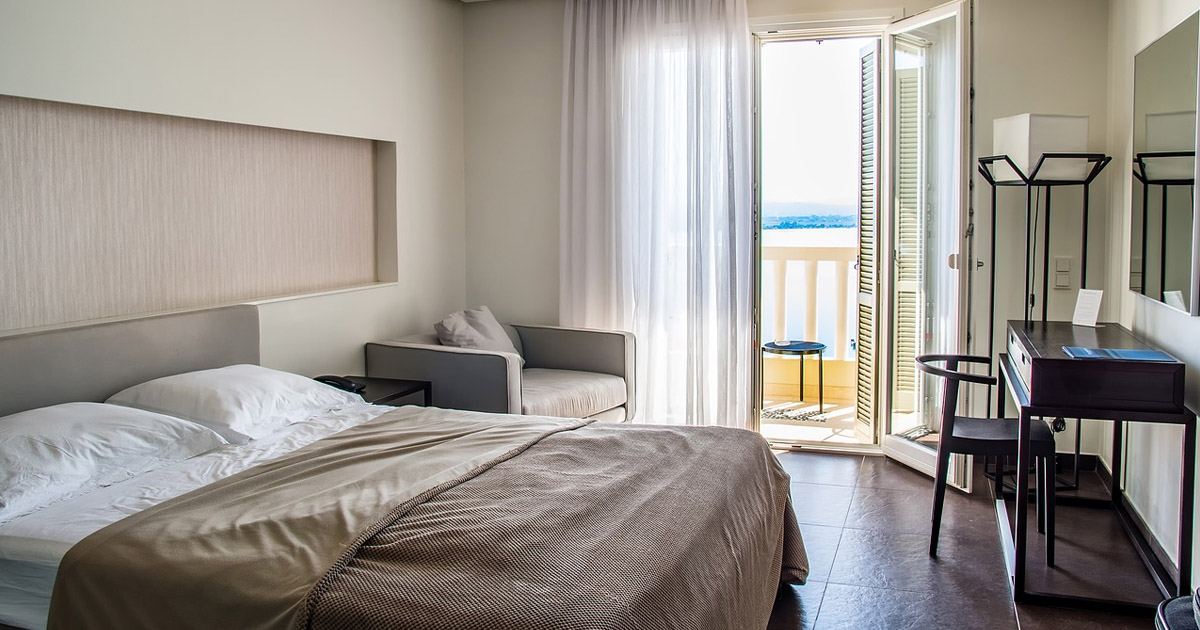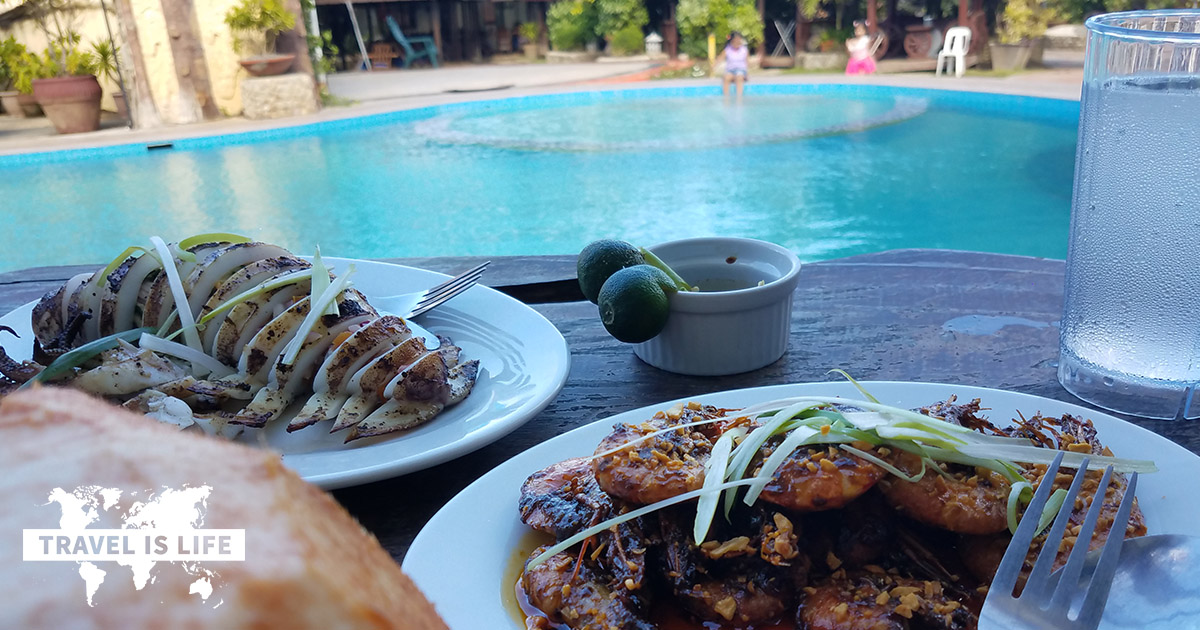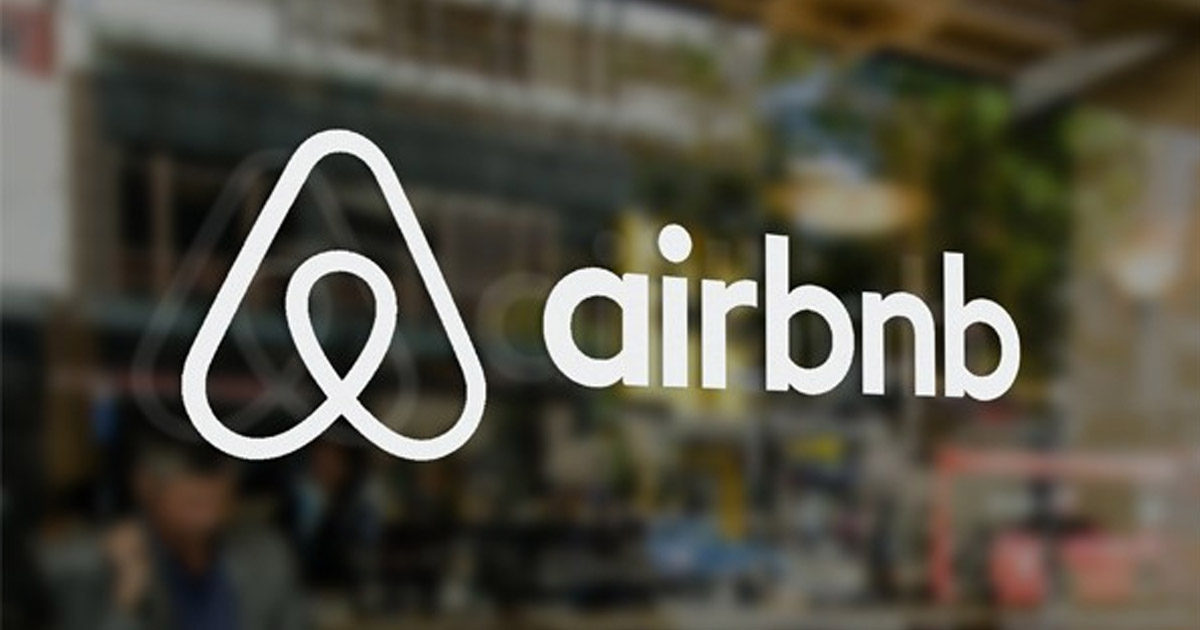I love to negotiate. I believe that everything is negotiable. And since I travel full time, that's where most of my negotiations take place.
When most people think of negotiating while traveling, the idea of haggling with a street vendor at a marketplace pops into their heads. “You want 200 pesos for this souvenir? I'll give you 100 pesos.” “How's 150 pesos?” “Deal.” But that's not negotiating. Not the kind I'm talking about. In fact, I rarely ever negotiate the price of souvineers at a market. Honestly, some of those sellers are dirt poor and could use the money more than me. This article isn't about taking $0.50 from a street vendor's pocket. Today I'm going to show you where the real money's at.
Negotiating the price of your Airbnb rental
By far, the biggest expense I incur when I travel is housing. Understandably I pay a premium for housing because I rent fully furnished houses and condos that include Internet and utilities. For example, I may pay $600 for an all-inclusive apartment that the local guy next door is renting for $300. The difference of course is that he pays utilities, signed a 12 month lease, and had to furnish it himself. I'm only here for a month.
So since housing is already inflated, why not negotiate? Here's how I do it.
Last week I flew into Manila and wanted to rent a place in Makati, the popular business district. This area of town is expensive! These aren't the rental prices I wanted to see in the Philippines. But like a lot of people say, “Manila isn't the Philippines.”
I try and keep my housing expenses between $500-$600 each month. Sometimes I keep it even lower, other times I splurge. But on average, I stay in that range, which is typically more than enough to live well in many countries.

The photo above is a place that rents for $1021/month. The host offers a 25% monthly discount which brings it to $765.75 which is more than I want to spend. Here's my e-mail:
Hi —–
I hope you are doing well. I'm in Philippines for the next few months for work.
I like your place – very beautiful and in the area I'd like to live. It's out of my price range though. I was wondering if you'd accept $550 for the dates of Mar 3, 2017 to April 3, 2017?
No hard feelings if not, but it's worth asking as I'd love to rent with you.
Thank you very much.
PAUL
And that's where I'm writing you this blog post from. My $1021 condo that I rented for $550. I e-mailed 10 other hosts similar e-mails and 3/10 said yes. Why did they agree to my terms? A few reasons.
The first is that I'm e-mailing them usually 2-3 days before I arrive and their place isn't rented out yet. If you were a landlord, would you rather have $550 for the month or take the gamble that someone else will come along in the next few days? Some hosts take the gamble, others don't and they rent to me. I feel it's a win-win. I don't know if this strategy would work if I e-mailed hosts weeks in advance and tried to negotiate them down in price because they'd still have plenty of time to find a renter.
The second reason this strategy works is that I'm asking to rent for a month versus a week or a day. My last minute request takes a lot of pressure off the host for the upcoming month and that's an attractive offer.
The third reason this works is that I'm renting condos and houses, not luxury vacation rentals which cater to short term renters. Vacation rentals have more to earn by renting less frequently but charging more. They'd rather take the risk of renting the place last minute for a night or two at a higher rate because that's their clientele. For the types of homes I rent, last minute requests like this aren't too frequent.
But honestly, all those reasons aside. I'd still try and negotiate no matter what. It doesn't hurt to ask.
Follow my simple formula of short and sweet e-mails:
- Compliment the host about their nice place.
- Tell them why you're here for a reason that sounds professional so they know you're not going to trash the place partying.
- Tell them it's out of your price range and ask if they'd accept your offer.
- And let them know that you'd love to rent with them, but no hard feelings if they can't accept your offer.
And that's how I negotiate the price of Airbnb rentals. (If you're not already using Airbnb to book places to stay, here's a link for $20 off your first reservation.)
Negotiating the price of hotels

There's a simple formula for owning a profitable hotel which is: Fill up your rooms.
Last week I rented a room in Daet for 4 nights. The room rented for 1200 pesos ($24/night) and I paid an average of 700 pesos ($14/night). My strategy for negotiating with hostels and hotels is a lot more straight forward because I'm in person. Ready for my big negotiation secret?
I ask how much and then make an offer. Yeah, seriously. It's as simple as that. They give me their price and I offer the price that I'm willing to pay. It helps if you're staying more than one night, but they usually accept my offer either way.
Why does this strategy work? Like I said, the formula for operating a profitable hotel is to fill your rooms. Yes there are variable costs associated with renting a room, but they are small in comparison to the fixed cost of operating the entire hostel. $14/night does more for their bottom line than not renting the room at all. There's a reason why hotels are all over Expedia and deal sites. It's because they know that renting their rooms at a discount is better than not renting their rooms at all. Once there, the guest often spends more money on food, drinks, and high margin services, which they wouldn't if they weren't there in the first place. And unlike going through a discount site, the hostels are receiving the full value of my offer without having to pay the site a commission.
And that's how I negotiate the price of hostels.
Negotiating the cost of your travel gear.

A friend of mine once said to me, “You can't negotiate at Best Buy. They're a huge corporation.” And I LOLed. I literally laughed out loud a boisterous “HAH!” at the thought of not negotiating with big companies. I do it for sport.
My last big negotiation was when I upgraded my computer equipment for my business, which is essentially just my laptop and a few peripherals. The total purchase came to the following items:
- Lenova Yoga 900 Laptop
- 2 Year Best Buy Protection Plan
- Logitech Trackball
- USB to HDMI Adapter
The first move is the Price Match, which most big retail stores will do for you. Do your homework online and find the best prices on each individual item for the store to match. I want to negotiate starting from that price, not the full retail price.
Once you're there, the next step is to consider the profit margin on your items. The laptop itself? Maybe 5% margin. The accessories? Probably 70-90% profit margin. The product protection? At least 40-50%. In McDonalds terms, the laptops are the hamburgers and the accessories and protection plans are the fries and drink.
The formula for profitable retail stores is simple: Move inventory. There's more inventory where it came from. My strategy is to consider the profit margin on each individual item and make an offer for the total package that doesn't put the store in the negative.
Why does this strategy work? Retail stores have metrics that aren't always profit driven. Profit goals are often done at the corporate level while sales metrics are given to the individual stores and associates because they're easier to compute. Accepting my offer at a reduced profit margin still contributes to the store's gross sales total, accessory to laptop ratio, protection plan sales count, and overall bottom line. It also moves inventory which is important. I think I'm the last guy left who uses a trackball instead of a mouse so they were probably happy to make room on the shelf.
And that's how I negotiate with big corporations on my gear. By the way, if you're in the market for some new travel gear, check out the Travel is Life Shop. Feel free to negotiate. 🙂
What do all these negotiations have in common?
I hope you see a trend among all my negotiation examples. The trend is that all of my negotiations are win-win scenarios for me and the other party involved. This isn't cut throat Richard Gere in Pretty Woman style business negotiations. This isn't Ben Affleck in Boiler Room. This is real life. I'm out to build bridges, not burn them. Helping each other and finding mutually beneficial scenarios is half the battle with negotiating. The other half is simply asking for the sale.
Let's negotiate
Did you learn something from this article about what's possible with negotiation? If so, how do you plan on using these tactics when you travel? What are some other ways that you negotiate when you travel? Let me know your thoughts in the comments section below. And be sure to share this post with your traveler friends who could afford to save a few bucks when they're on the road.
If you like it then you should've put a Pin on it!
Like this article and want to Pin it to one of your Pinterest boards? Use this special Pinterest friendly graphic below!



I once haggled for a backpack in a mall in Manila. Negotiating works with the right person. In my case, it was the shop manager whose presence I asked for from the shop attendant. I basically got a $2 discount which I used to buy myself a Starbucks drink after purchasing the backpack.
Nothing tastes more satisfying than a free cup of Starbucks coffee 🙂
I received an e-mail about this article and thought I’d share the e-mail (minus the writer’s name) and my response below since it might help clarify some questions you have also after reading this post:
* * * * * * * * * *
Hi Paul,
I ran across your post and thought it was a really thoughtful and measured way of thinking about negotiating, especially the bit about when/who to negotiate with. I tried something similar to your method last year, to somewhat moderate success…
Finding AirBNB places that are completely un-booked for the whole month, a couple of days before arriving at a place, is actually not as easy as I’d thought. What I’ve seen is that places will be open, but have a couple of days in the coming month booked.
What’s your experience like?
What do you do in the scenario described?
I have not try negotiating with hotels & hostels yet, but you got me thinking.
Do you just book 1 night with them, then show up, pay for the 1 night, see if you like it, and then negotiate? Or do you just show up? The difference, for me, is that I want to be able to “test” out a place first, to see if I want to stay longer.
Also, what happens if they say no? Do you just walk to the place next door?
Thanks!
* * * * * * * * * *
Hey!
Thanks for reading my blog and for the e-mail. I haven’t had too much trouble in the past finding places last minute, but of course that probably has a lot to do with where I’ve been living which has mostly been in capital cities which seem to have plenty of rooms. Maybe I’ve just been lucky.
To be honest, doing last minute bookings isn’t one of my negotiation secrets as much as it is just part of my lifestyle. I’m terrible at planning accommodations ahead of time and always find myself booking places last minute. I negotiate everywhere with everyone. I recently negotiated an island hopping tour in the Philippines down from 1250 pesos to 750 pesos. But then the tour was so great and the guys worked so hard that I ended up giving a 100% tip and paying 1500 pesos after all. I love to negotiate more than I even love to save money.
In regards to your hotel questions… most of the time I just show up places and rent a room on the spot. Sometimes friends in the city book my accommodation for me for the first night and I negotiate after that. Whether or not I’ll walk out the door depends on what time of night it is, how tired I am, where I am, how good the deal is already, and what else is around me. Right now I’m staying a this hotel in Iloilo, Philippines with a private bathroom, A/C, and desk for $8/night. I definitely tried to negotiate when I arrived and they wouldn’t budge but I’m here anyway. It’s across the street from where I need to be and significantly less expensive for what I’ve got than anything else nearby. And I literally ask them for a discount every single day when I pay. One of these days…
Sorry if I don’t have the best answers for you. Negotiation stories are so anecdotal. Personally, I wouldn’t change your lifestyle over trying to save some money through negotiation. Continue as you normally would.. and every time you spend money as you normally would, ask for a discount. I get wanting to test a place out so ask for a discount the first night. Or a room upgrade. And if you decide to stay, continue asking.
I think I mentioned in the article that people do nice things for other people they like, so just have fun with the people you meet and they’ll probably help you out.
Good luck!
PAUL
Interesting 😀 I honestly never thought to negotiate prices like this — would you do this in an American hotel as well? I feel like they’d be so strict and laugh me out of the place!
Oh yeah, absolutely I would. American hotels are probably more discount-centric than anywhere else in the world with all the deal sites they’re part of. Try it next time you get the chance, and then tell me how it goes. 🙂